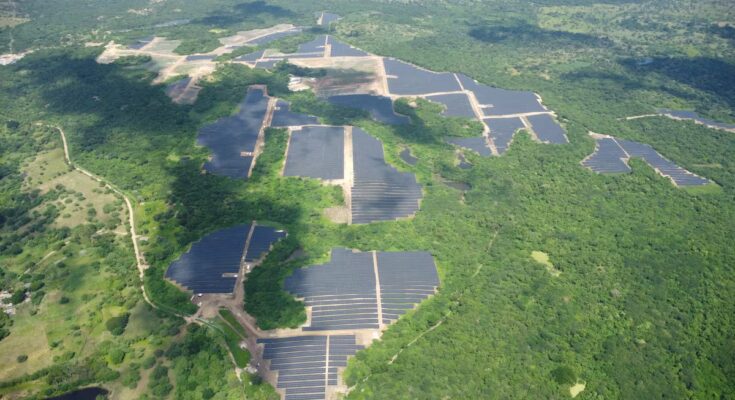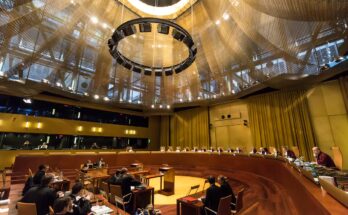Uncertainty has calmed in the renewable energy market after the major blackout on April 28, which highlighted the fragilities of the electricity system. Since then the sector has been going through a difficult cycle because it has not yet been clarified what happened and there are those who blame green energy. Some projects slow down, but Negratín, a medium-sized company based in Granada, has chosen to mitigate risks by growing outdoors. The company, founded in 1998 in Pozo Alcón (Jaén) as a family business of electrical installations, has managed to consolidate itself as an industrial group with a presence in more than 30 countries.
The company had a turnover of 101 million euros in 2024, with a growth of 33% compared to 2023. The installed capacity already amounts to 4.53 gigawatts built in renewable energy projects and, although its headquarters remains in Granada – where it employs more than 300 people – its eyes are set on Latin America: “The market in which we want to grow the most between now and 2030 is Colombia”, says the company’s executive vice-president, Celedonius. Noguera. in conversation with this newspaper.
The bet is decided. In 2022, Negratín built the Bosques Solares de Bolívar Solar Complex, a 100 MW plant in Sabanalarga (Atlántico), built for the local energy company Isagen. The project, which required an investment of over 114 million euros, was delivered in EPC (turnkey) mode and is today also in the operation and maintenance phase. The facility has more than 190,000 bifacial panels and a complex evacuation infrastructure.
Today the company already has 675 MW in operation in Colombia and another 200 MW under construction. Furthermore, it has diversified the business with the launch of a new line – NGS Investment –, an investment arm to directly promote solar projects in Colombia, Mexico and the United States. The objective is clear: to incorporate another 500 MW into its own assets between 2025 and 2027 in the Andean country.
Stressed sector
The context is not easy. The blackout experienced throughout Spain slowed down the development of new projects and the profitability of pure photovoltaic systems was compromised. Added to this is the financial pressure on an industry that requires high levels of leverage, although Noguera stresses that its accounts are “well healthy” compared to other players in the sector. “We have the debt under control. This gives us space to make strategic decisions without being too dependent on bank credit,” explains the manager.
Negratín’s business model, which spans from initial development to plant operation and maintenance, allows it to quickly adapt to market changes. This vertical integration was critical to maintaining control in an unstable environment. The company has also opted for technologies with greater added value, such as hybridization and battery storage, which are essential to guarantee flexibility to the electricity system. An example of this is the Prudencia project in Panama, where the company combined an existing hydroelectric plant with a new solar plant, jointly managed through an intelligent energy control system.
Furthermore, it participates in development and research initiatives, such as the Hydor project, in Granada, a “new business line focused on providing energy solutions through renewable hydrogen to industries and large energy consumers”. But internationalization is its lifeline and a strong lever for growth. Since his first contract in Italy in 2010, Negratín has completed projects in more than 10 countries, including Japan, Chile, Mexico, Peru, Bolivia, Honduras, Panama and the United Kingdom. In Japan, for example, it has installed more than 600 MW of solar systems, consolidating its experience in demanding markets and very strict regulations.
In September the company took a strategic step by incorporating the French fund TiLT Capital Partners, which acquired 38% of the capital. “The operation aims to accelerate the construction of its plants and strengthen its international presence,” they underlined in a statement. With this support, Negratín hopes to expand its investment capacity and compete on equal terms with larger operators. But in Negratín they know that, while managing to compete in terms of size, they focus on specialization. Its structure, in fact, allows it to offer customized solutions and maintain a close relationship with customers. This flexibility was key to working with large energy companies in Colombia, such as Enel, Isagen or Celsia.
The strategic plan in place points to 2030. The company wants to consolidate itself as a technical partner and leading investor in emerging markets, with a pragmatic approach: grow where there is demand, diversify technologies and maintain financial control. In a sector where many medium-sized companies have disappeared or been absorbed by large groups, Negratín shows that another path is possible. With its feet in Granada and its head in Colombia, this Andalusian company wants to be a protagonist in the global energy transition.



